South Korea

The 2025 APEC Meeting: Opportunity For South Korea to Step Up
The sluggish global emissions reduction progress and the worsening climate emergency necessitate all hands on deck. South Korea, which has historically been among the biggest climate laggards, can change course and help lead Asia towards a cleaner and more sustainable future.

South Korea Election 2025: Key Climate Issues and What’s at Stake
South Korea lags behind other developed nations regarding the clean energy transition, while the dependence on fossil fuel imports erodes its economy's competitiveness. While the country has the resources, capabilities and ready-to-deploy solutions to change course, its path ultimately depends on political will.

Climate Tops Voters’ Priorities As Asia Pacific Braces for 2025 Elections
The elections that are about to take place all over APAC in the upcoming months provide candidates with an opportunity to acknowledge ambitious climate and emissions reduction action not only to appease climate voters but also to guarantee economic growth, energy security and better handling of the cost-of-living crisis.
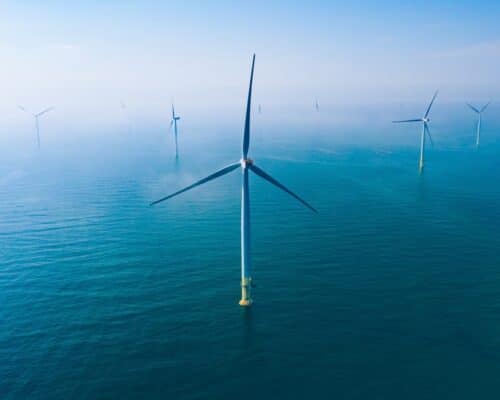
S. Korea’s Offshore Wind Potential and Getting Locals Onside – Podcast
Energy Insights speaks with Mark Hutchinson, the director and chair of the Southeast Asia Task Force at the Global Wind Energy Council (GWEC).
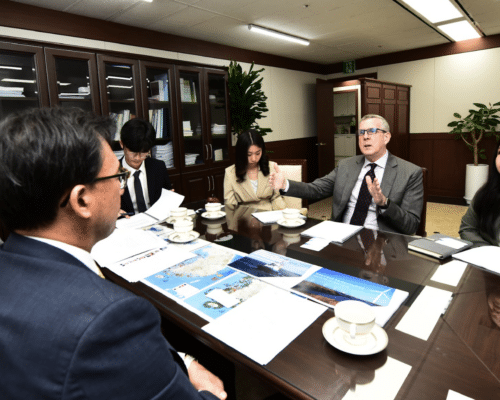
Offshore Wind Offers South Korea Huge Economic Opportunities: GWEC
According to the GWEC, offshore wind power can bring South Korea 770,000 new jobs and 87 trillion won (USD 63 billion) in investments over seven years. However, unlocking these gains requires a holistic plan where the government and stakeholders collaborate to introduce favourable supporting policies and advance community-focused offshore wind deployment.
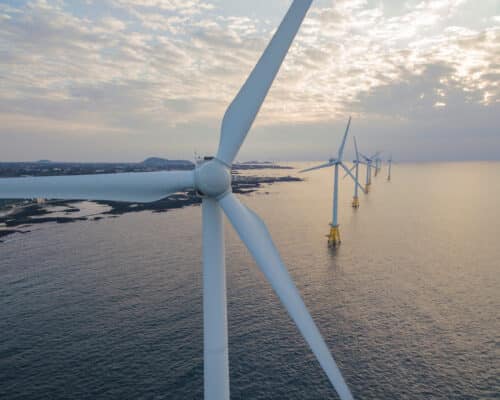
South Korea’s Energy Mix and Its 10th Basic Energy Plan
South Korea's decarbonisation progress so far makes hitting its 2030 and 2050 targets unrealistic. In its current form, the 10th Basic Energy Plan that will come into force this year is unlikely to change that. The country needs more ambitious renewable energy targets, a sentiment also echoed by South Korea's biggest businesses.
Green Transportation in South Korea – a Key Enabler for the Net-Zero Revolution
South Korea is facing an uphill battle to make notable progress towards clean energy in line with the Paris Agreement commitments. Green transportation appears to be one of the most powerful tools in the government's arsenal. The opportunities in the industry are huge, while the challenges are solvable.

South Korea’s Energy Mix: Prominent Role of Fossil Fuels
The IEEFA warns that South Korea’s misplaced faith in fossil fuels could create a vicious cycle of spiralling energy costs, derailed decarbonisation progress and loss of opportunities as investors back the transition to renewable energy.
Wind Energy in South Korea – Opportunities and Challenges
The wind energy sector can become the difference that gives South Korea's renewable energy progress that much-needed boost. The country's vast potential for offshore wind is already starting to attract some of the leading developers in the industry. Judging by the first signs, South Korea's future promises to be "windy."

The LNG Plans For Samsung’s New Megaproject Threaten Its Reputation
Today, Samsung is far from being a climate leader - neither in terms of current progress nor when it comes to pledges. However, the company has all the means to become one. Advocating for more renewables and less fossil fuels in South Korea's climate policies is a crucial first step.
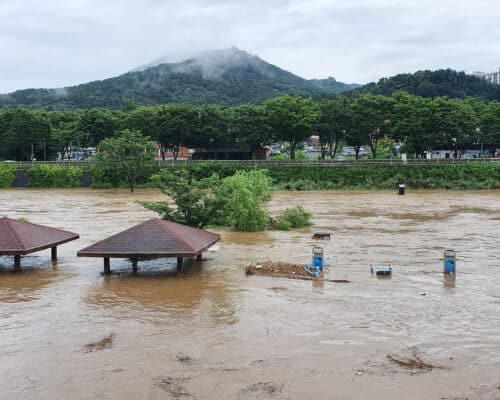
Climate Change in South Korea: Floods, Heat and Looking Away
South Korea's strategy to address climate change's impacts is reactive, not proactive, while its newly adopted policies and upcoming plans continue to undermine renewables.
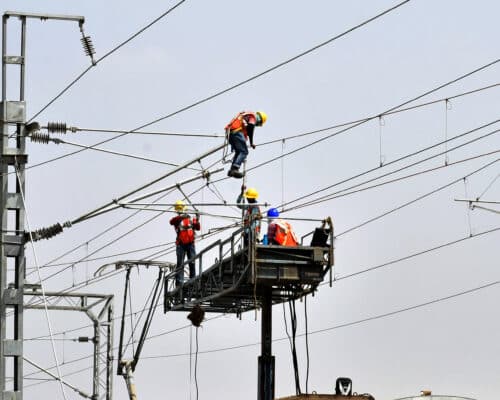
The Impacts Of the Electricity Price Increase On Asian Countries
While the electricity price hikes across developing and developed Asian nations started in 2022, they are expected to extend into 2023. This risks impeding economic growth, fueling inflation and affecting the poorest the most. On the bright side, it is the perfect moment for a long-needed energy system overhaul.
South Korea’s LNG Reliance
South Korea is deeply involved in the development of LNG import and gas-to-power infrastructure across the Asia. It must divert its resources to renewables.
Samsung Joins RE100: The Effect on South Korea’s Clean Energy Progress
Korean RE100 members have to take leadership by pushing policy-makers to expand renewable energy supply and lower prices. Samsung's involvement can be the decisive factor that urges the Korean leadership to make a change.
Most Popular
Categories
-
10
-
34
-
126
-
4
-
17
-
46
-
52
-
11
-
15
-
10
-
24
-
6
-
5
-
1
-
6
-
283
-
200
-
17
-
24
-
1
-
1
-
23
-
41
-
44
-
88
-
18
-
86
-
41
-
17
-
11
-
43
-
54
-
86
-
299
-
22
-
44
-
36
-
11
-
42
-
36

